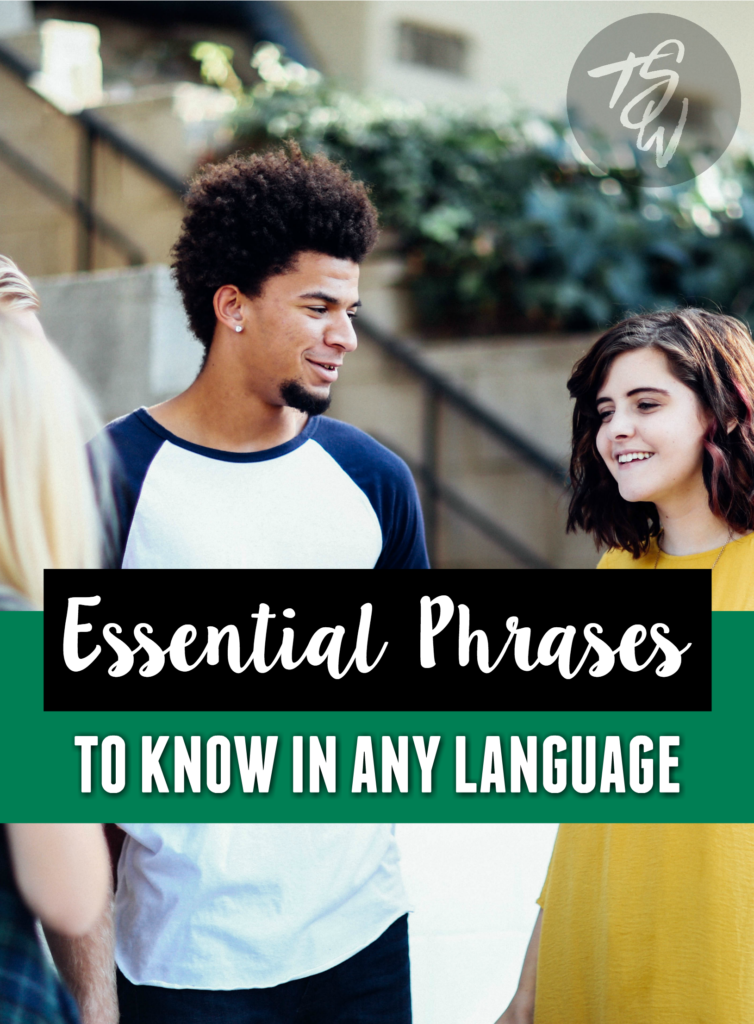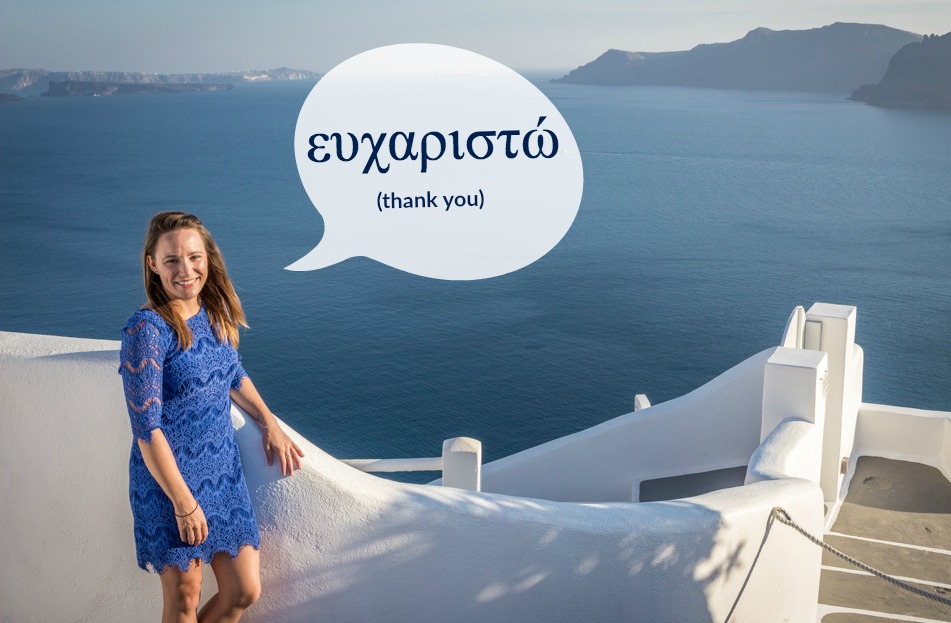In an increasingly globalized and English-speaking world, I’m beginning to fear that travelers may start to overlook or underestimate the importance of learning basics of the language spoken in their destination.
When you hear people say over and over again that “A little bit really does go a long way” it’s because it’s true! You don’t need to be fluent in the local language to appear courteous and friendly, but you do need to know a few basics. The effort will not go unnoticed.
I understand how challenging planning for a trip can be; with so many things to think about–like visas, booking accommodation, researching travel advisories or immunizations you may need, figuring out how to get from one place to the next–learning the language may be the last thing on your mind.
The good news is, you can start with a few essential words and phrases and build your knowledge from there.
Related: My Favorite Free Language Learning Resources
The following 5 words and phrases are some of the most important ones to know when first learning a new language:
Hello!
Greeting people in their own language is the most basic courtesy you can offer as a traveler. You are a guest in their home, and saying “Hello” in the language they understand will ensure that you are welcomed. Even if your language skills fail from here on, at least they know you’ve put in some effort up front (and may be willing to help you learn more!).
Thank you.
I’d argue that “Thank you” is the second most useful phrase to know in any language. You use it in almost every interaction just as you would “Hello,” especially in the beginning when you are primarily speaking with service people like airline attendants, taxi drivers, hotel concierge, supermarket or restaurant staff, etc.
Excuse me…
“Excuse me” is another important polite phrase to know, and one that can be extremely useful in those circumstances when you need to get someone’s attention, and especially when you’re not sure whether physical contact is appropriate (hint: it’s usually not). Find “Excuse me” in other languages here.
I’m sorry!
Phrases like “I’m sorry” will really catch a native speaker off-guard (in a good way) because very few tourists go through the trouble of learning them. It’s always nice to apologize for bumping into someone or otherwise interrupting their day, and doing it in their own language will win you even more respect.
Cheers!
Ah, the number of friendships that I’ve formed over the simple word “Cheers!” Even if the language barrier meant our conversation never went deeper than this, this little word (and the act of sharing a beverage) never failed to create a sense of camaraderie with locals. I’d recommend learning it in as many languages as you can.
Goodbye!
Only slightly less important than hello, “Goodbye” is a great way to interact in the local language on a basic level that will be very much appreciated. In some languages you may want to learn a more informal phrase that would be more akin to “See you later,” but this is a great place to start!
Shop Language Resources
[easyazon_image align=”none” height=”160″ identifier=”0307478599″ locale=”US” src=”https://www.thesweetestway.com/wp-content/uploads/2016/06/41IBakoXZmL.SL160.jpg” tag=”themochdiar-20″ width=”121″][easyazon_image align=”none” height=”160″ identifier=”0307478432″ locale=”US” src=”https://www.thesweetestway.com/wp-content/uploads/2016/06/41g4I5JTvSL.SL160.jpg” tag=”themochdiar-20″ width=”121″][easyazon_image align=”none” height=”160″ identifier=”0307478556″ locale=”US” src=”https://www.thesweetestway.com/wp-content/uploads/2016/06/41OzodAnnTL.SL160.jpg” tag=”themochdiar-20″ width=”122″][easyazon_image align=”none” height=”160″ identifier=”0307478572″ locale=”US” src=”https://www.thesweetestway.com/wp-content/uploads/2016/06/41k4LR1JAIL.SL160.jpg” tag=”themochdiar-20″ width=”121″]
Which words and phrases do you think are most important to know in any language?



